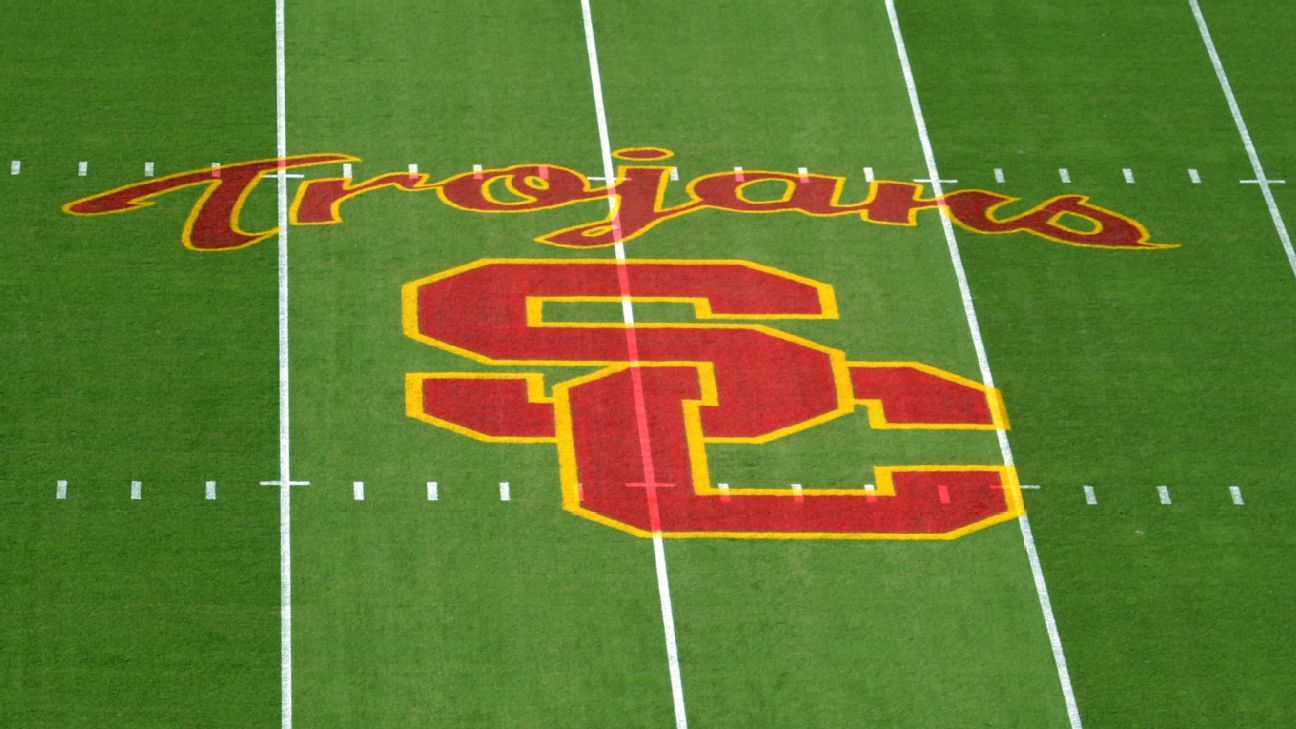An effort to legally recognize college football and basketball players at the University of Southern California as employees of their school, their conference and the NCAA took a significant step forward Thursday.
The National Labor Relations Board has directed its Los Angeles regional office to pursue charges of unfair labor practices against USC, the Pac-12 and the NCAA. The NLRB will argue that athletes at USC are employees of those three groups and that their rights have been unlawfully restricted. If they are successful, athletes who play men’s basketball, women’s basketball or football at any private college in the NCAA will be granted the rights of employees, including the freedom to create unions.
The claim was filed on behalf of USC athletes by the National College Players Association, an advocacy group that has led several campaigns to increase various benefits that college athletes receive.
“We are working to make sure college athletes are treated fairly in both the education and business aspects of college sports,” NCPA executive director Ramogi Huma said. “Gaining employee status and the right to organize is an important part in ending NCAA sports’ business practices that illegally exploit college athletes’ labor.”
Huma was also involved in helping athletes at Northwestern University attempt to form a union in a similar effort nearly a decade ago. In that case, a five-person panel from the NLRB declined to rule on a petition for Northwestern players to unionize, essentially punting on the question of whether or not college athletes should be considered employees.
In the Los Angeles-based case, Huma’s group filed unfair labor practice charges rather than a petition to unionize. The NLRB does not have the option to dismiss this type of claim before it goes in front of an administrative law judge.
College athletes are still multiple steps away from the possibility of being granted employee rights, and the process to get there could take months if not years. The Los Angeles regional office of the NLRB will next argue on behalf of athletes in administrative court. If the administrative law judge agrees that athletes should be considered employees, the NCAA can appeal that decision in federal court.
“This matter remains at an initial stage, and no final ruling will be issued until there has been a full hearing based on all the relevant facts and law,” USC said in a statement Thursday. “We look forward to presenting those facts, along with 75 years of favorable legal precedent, at the appropriate time.”
Among the reasons the board provided for dismissing Northwestern’s petition in 2015 was a concern that allowing individual teams to unionize could create problems and that a single-team union could have negative impacts on labor stability. Unlike at Northwestern, the USC case is the first to consider whether the Pac-12 and the NCAA should be considered as joint employers — opening the potential for unions that would consist of players from more than one school.
The political and legal landscape has changed considerably since Northwestern’s unsuccessful attempt to unionize. The NCAA has rewritten its rules to allow players to earn compensation from third-party endorsers. A unanimous decision issued by the Supreme Court in June 2021 raised questions about the NCAA’s ongoing claims that amateurism is an essential part of its business. In a concurring opinion in that case, Justice Brett Kavanaugh said college athletes could find a more fair path toward sharing in the revenue they help to create by establishing some kind of collective bargaining group.
Last September, NLRB general counsel Jennifer Abruzzo issued a memo that made clear she thought that some college athletes should be considered employees. Many interpreted Abruzzo’s memo as an invitation for college athletes to make another attempt at forming unions.
Two separate groups have filed complaints with the NLRB since then — one in Indianapolis against only the NCAA and the other in Los Angeles. The NLRB has opted to put the Indianapolis-based claim on hold until it works through the Los Angeles case.
On Thursday, Abruzzo said that misclassifying college athletes as student-athletes instead of employees “deprives these players of their statutory right to organize and to join together to improve their working/playing conditions if they wish to do so. Our aim is to ensure that these players can fully and freely exercise their rights.”
Huma and the NCPA have organized a variety of campaigns to try to increase healthcare benefits for college athletes and get rid of limits of what they can be paid, including a social media protest during previous March Madness tournaments. Former Iowa basketball player Jordan Bohannon joined the NCPA’s athletes board after participating as one of the leaders of that protest. Bohannon, who now plays professionally for the G League’s Iowa Wolves, called Thursday’s decision an “important step toward much needed change.
“I am clearly an employee as a G League basketball player, and I’m doing the same thing I was doing just months ago for the University of Iowa. The difference is that I now have employee rights under labor law and protections under a collective bargaining agreement,” Bohannon said in a statement. “NCAA sports has used the words ‘student-athlete’ and ‘amateurism’ to skirt labor laws and deny generations of college athletes fair treatment.”
